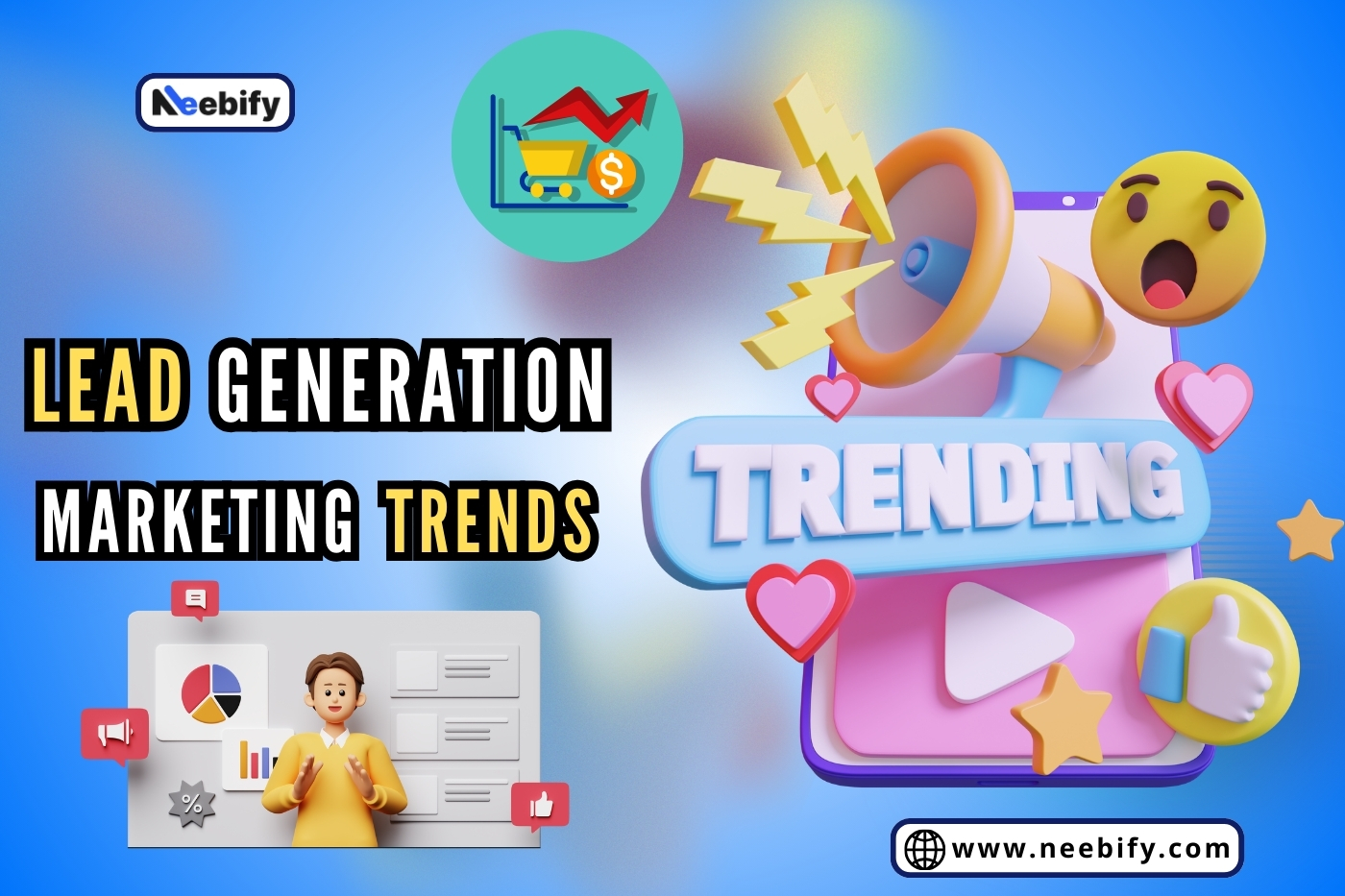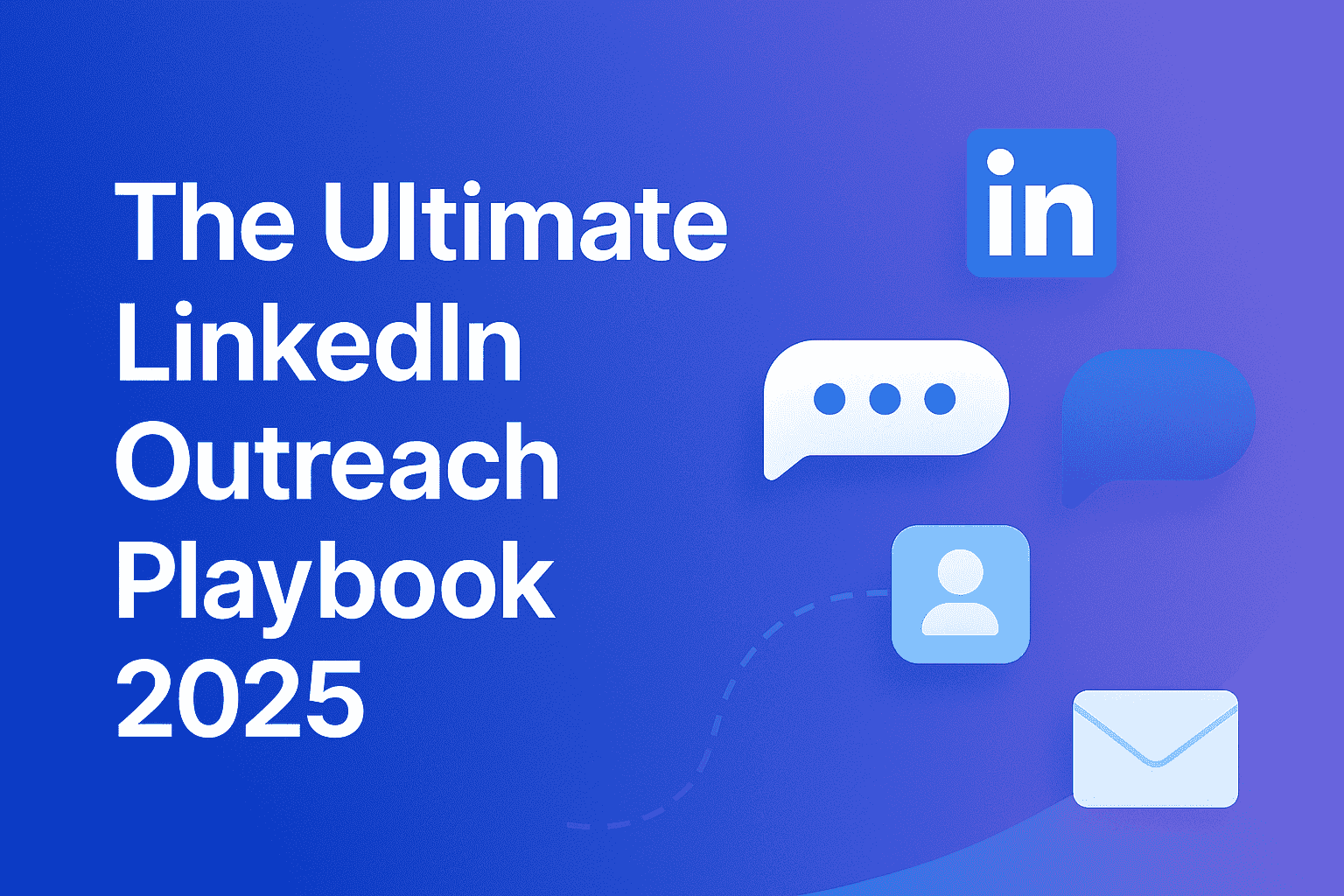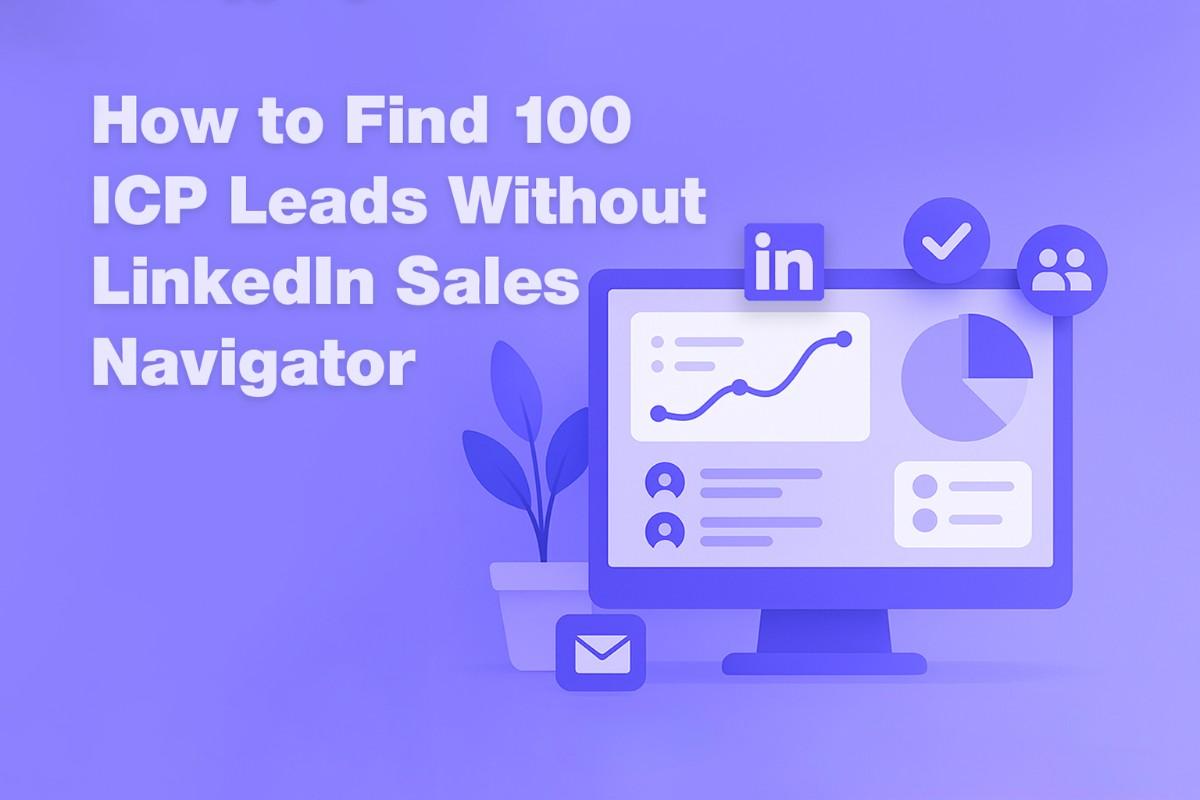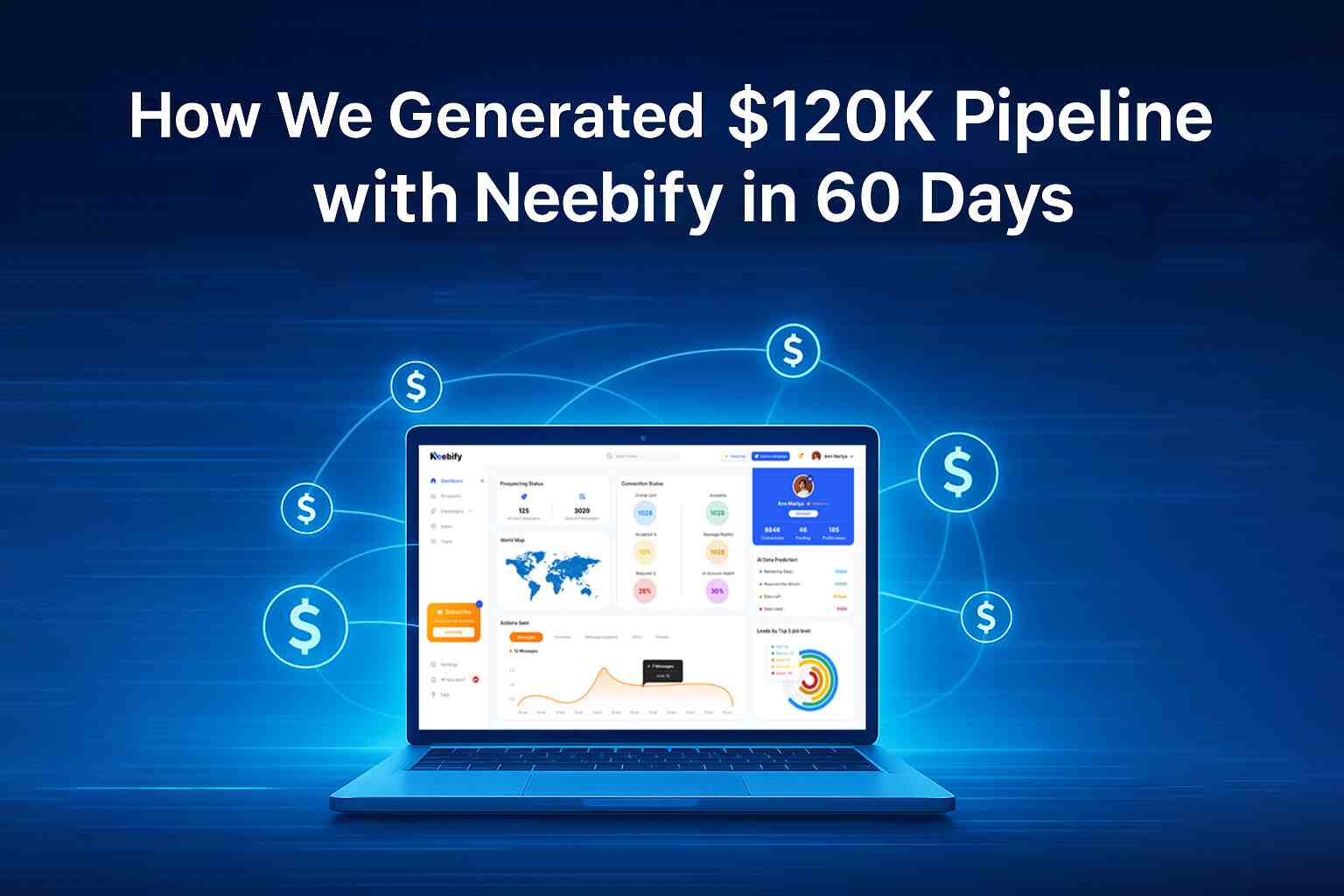Table of content
Lead generation remains the foundation for the successful use of a marketing strategy for the new age of a digital-first world. The lead generation landscape in marketing is constantly in flux as technological change is always on the increase and consumer behavior is forever changing. For keeping up with the trends, high-quality leads must first be captured and then nurtured. Here's what is lead generation, why is it crucial, and the top six trends shaping the future of lead generation marketing.
What is Lead Generation in Marketing?
Lead generation in marketing is about attracting prospects-to-be, or leads-and the conversion of such prospects into interested individuals or organizations in a company's product or service. Interest generally comes from the users' action, such as filling out a contact form, downloading an ebook, subscribing to a newsletter, or requesting a product demo.
The goal of lead generation is to create a qualified leads pipeline, which eventually converts into paying customers. Lead generation strategies vary with the kind of business and can range from the most extreme measures to a mixture of inbound as well as outbound marketing techniques.
For instance, inbound lead generation may include content marketing, SEO, as well as other social media campaigns that can attract prospects organically. Outbound lead generation might include cold calls, email outreach, or paid ads targeting demographics.
It is a matter of quality, not volume, when generating leads. Companies look for leads that presumably are good possibilities for long-term customers, bettering the CAC and ROI.
Why Lead Generation Marketing Trends Are Important Today?
In the digital age, competition is now stiffer, and the information available to consumers is ridiculously enormous, making it important for businesses to update their lead generation strategies in the light of current changes. The future of lead generation is a culmination of tech advancement, consumer expectations, and general industry shifts.
Why the watch for lead generation marketing trends?
Some marketing trends are written here:
1. Evolving Expectations of the Consumers: The consumers today are better informed than ever. It is because they will visit to research products as well as services fully before coming to a conclusion on any purchasing activities. Therefore, businesses can sell value from the very point of touch. Lead generation trends enable businesses to meet higher expectations presented by these ever-changing demands of consumers with the right information at the right time.
2. Technological Advancements: AI, automation, and data analytics have changed the face of the lead generation process. Since today better tools are at the disposal of the marketing teams to automate lead nurturing, target more precisely, and personalize leads, keeping pace with the developments will ensure businesses do not fall behind the curve.
3. Competition: The more firms go online, the tougher it will be to gain an edge in that crowded marketplace. With the latest lead generation trends, companies would thus be better positioned to attract their desired market and create that extra level of differentiation in the market.
4. ROI: The bottom line is immensely impacted when lead generation is done with a proper model. It increases conversion rates, reduces costs, and in turn creates better profitability based on the latest trends.
What's the Future of Lead Generation?
The future of lead generation is likely to be primarily shaped by a number of critical technology advancements, shifts in consumer behavior, and marketers' strategies. Some predictions for the next 5-10 years are as follows:
1. Increased use of AI and Automation: There will be a shift in the business landscape through lead generation and nurturing as AI and automation find their place there. This is because one may analyze large chunks of data and understand the behavior of the buyer along with the trend through AI. Leads can then be predicted with great precision. Now, the modern strategy of lead generation includes standard chatbots, personalized emailing, and automation workflows.
2. Personalization at Scale: Consumers increasingly expect personalized experiences. The future lead generation will consist in very personalized outreach and hyper-personalized and dynamic landing pages, tailor-made content, and all related channels. By 2025, it is estimated that more than 80% of all marketing will be personalized.
3. Interactive Content: As consumer attention spans dwindle, the use of interactive content-quizzes, surveys, polls, and interactive videos-will be far more prevalent. This type of content engages prospects but also provides valuable data to segment leads and make even more effective marketing campaigns.
4. Voice search optimization: Now that voice-assisted devices like Alexa, Google Assistant, and Siri are gaining popularity, there is a rising need for optimizing business content for voice searches. Lead generation strategies will have to align with such shifts in voice search behavior in the near future.
5. Social Media Integration: Increasingly, lead generation tools are integrated with social media platforms. Key features of Instagram's shoppable posts, Facebook's lead forms, and LinkedIn's InMail are adding new avenues for interfacing and lead capture within social networks.
Top 6 Lead Generation Marketing Trends
Some of the few trends emerging as being more important for lead generation marketing are, as we move into 2024. These trends highlight data, technology, and, more importantly, consumer behavior in how businesses capture leads and their nurture process.
1. AI-Driven Lead Scoring: The use of machine learning algorithms to analyze lead behavior for those leads most likely to convert is one kind of application for lead scoring in the realms of AI. It would ensure sales teams that the qualified lead would be focused and that all the efforts would have been spent on high-potential prospects. It, therefore, can improve efficiency, reduce human error, and provide more accurate data in decision-making.
2. Chatbots and Conversational Marketing: Chatbots are no longer a nicety but, in fact, integrated into the complete lead generation process. In this age of AI and chatbots, where they have got better at keeping visitors engaged in real time, answer questions, and even qualify leads, it's high time to integrate chatbots with your CRM systems for automated qualification at any point in the lead generation process, instant responses to prospects, and valuable data for follow-up.
As much as conversational marketing is about chatbots, there is the subsequent utilization of live chats, video chats, and even voice-based conversations. The tailored interaction can take those leads down the sales funnel if a solution to their immediate needs is given.
3. Content Personalization: Lead generation seems to have a game-changer in content personalization. Dynamic contents adapted as per behavior, location, and preference of the user go a long way in raising the engagement rates significantly. For example, emailing and landing pages will have messages that tailor to the needs of the leads. People can have even more emotional connections with their prospects if they make use of personalized video content.
4. ABM: Account-Based Marketing is the most target-specific method of lead generation wherein the focus is laid on certain select high-value accounts and not on the overall lead generation practices. ABM helps businesses create a personalized campaign specifically focusing on a few numbers of accounts to increase conversion rates and help firms develop a long term relationship with the key clients.
ABM strategies use data and insights in hyper-targeted marketing efforts that speak directly to the decision-makers at key accounts through email sequences, social media engagement, and direct outreach and attract a lead from these sources.
5. Video Marketing: There is no doubt that video content tops the list of leading formats for generating leads. Most interesting, studies reveal that 81 percent of businesses are using video as a marketing tool, and 86 percent of video marketers claimed it helped increase leads. Live webinars, product demonstrations, tutorials, and explainer videos all work well to capture and nurture leads. Interactive video content, such as shoppable videos, is gaining popularity as an even better means to foster more lead engagement.
6. Social Proof and User-Generated Content (UGC): Social proof, in the form of reviews, testimonials, and case studies, has always been a staple of trust-building for potential leads. But in 2024, it's UGC that dominates. There is no better way to get new leads than through having users share their experiences with a product or service on social media. This is what brands utilize through campaigns that encourage customers to share their experiences, reviews, and photos, creating an abstraction of a kind of community and trust around a brand.
Conclusion
Marketing is one of the fields of lead generation that keeps changing all the time, making it a challenge for businesses to keep up. Everything related to 2024 moves fast: from AI-driven tools and personalization to conversational marketing and video content, it's going to drive the new lead generation landscape.
It's, therefore, very important to keep abreast of these trends since their success would not only help leverage the quality of leads developed but also keep your company relevant in an extremely competitive digital landscape. Embracing the latest technologies and marketing tactics in their operations would enable companies to ensure the leads produced were of high quality, relationships were nurtured effectively, and grow the company in the years ahead.
Adopting such trends now will not only position businesses for success but will also add significant momentum to an increasingly dynamic and competitive marketplace.
Get your next meeting in a
matter of minutes.
Free Trial
Latest
The Ultimate LinkedIn Outreach Playbook 2025
A practical, modern guide to mastering LinkedIn outreach in 2025 — learn how to boost reply rates, p
12/1/2025How to Find 100 ICP Leads Without LinkedIn Sales Navigator
Generating 100 targeted ICP leads doesn’t require LinkedIn Sales Navigator. Learn how to leverage fr
11/28/2025


